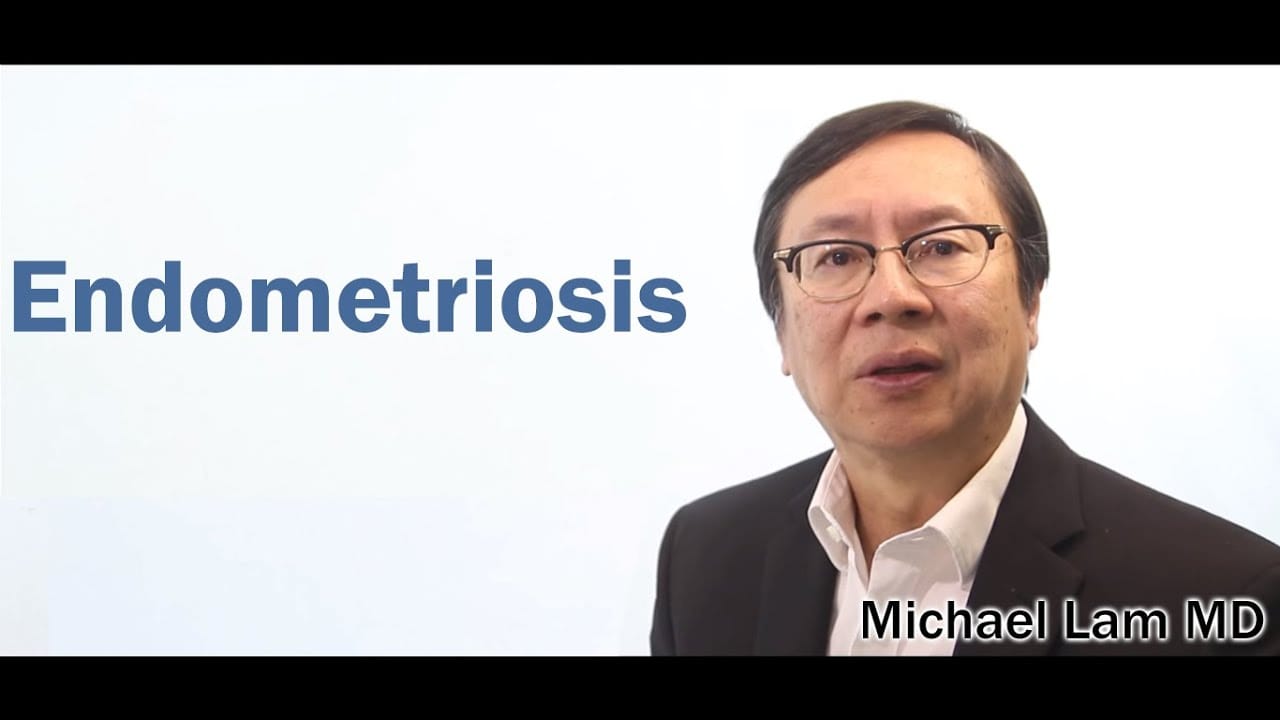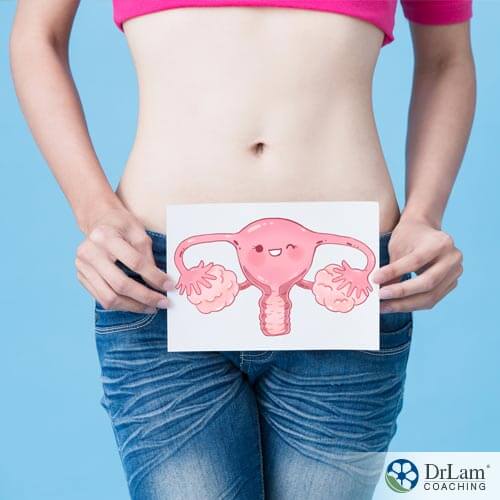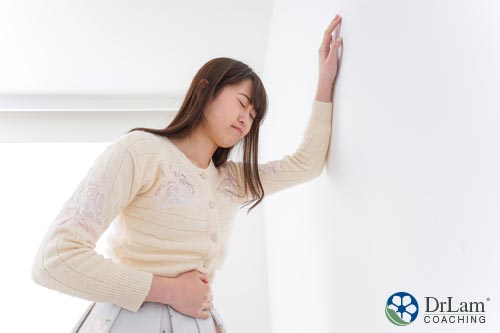
 Endometriosis is one of the most prevalent reproductive health issues and a leading factor for infertility. Around 176 million women around the world suffer from it, with the most common endometriosis symptoms being stomach pain and discomfort. There are lots of natural healing remedies for the condition and each woman tends to respond differently to different methods. There are also various endometriosis causes, which is why an in-depth understanding of the condition is needed before the right remedy can be chosen. Correcting endometriosis is extremely important for your reproductive and general health. However, it’s even more important if you have Adrenal Fatigue Syndrome (AFS) because it may be contributing to your condition.
Endometriosis is one of the most prevalent reproductive health issues and a leading factor for infertility. Around 176 million women around the world suffer from it, with the most common endometriosis symptoms being stomach pain and discomfort. There are lots of natural healing remedies for the condition and each woman tends to respond differently to different methods. There are also various endometriosis causes, which is why an in-depth understanding of the condition is needed before the right remedy can be chosen. Correcting endometriosis is extremely important for your reproductive and general health. However, it’s even more important if you have Adrenal Fatigue Syndrome (AFS) because it may be contributing to your condition.
The female reproductive system includes the vagina, fallopian tubes, uterus, and ovaries. In a normal menstrual cycle, the ovaries produce estrogen and cause the thickening of the inner uterine-lining tissues. This prepares the uterus to receive a fertilized egg. When the egg isn’t fertilized, the tissue lining sheds, which causes menstrual bleeding. However, sometimes this monthly process breaks down, resulting in endometriosis.
An endometriosis diagnosis is made when the endometrium, the inner uterine-lining tissue, develops outside the uterus rather than inside. These tissue deposits are called endometrial implants and often result in painful endometriosis symptoms. They’re most commonly found on the uterus, bowel, ovaries, Fallopian tubes, or on the lining of the pelvic cavity. However, in rare cases these tissue deposits can also build up on the cervix, bladder, and vagina. They can even grow outside the pelvic organs and have been found in the brain, liver, lung, and around old surgical scars. Most of the time, this tissue is benign and non-cancerous, but that doesn’t mean that it won’t cause problems.
This tissue is still affected by reproductive hormones and will thicken when the levels of these hormones rise as they do during certain points in the menstrual cycle. This causes pressure on surrounding organs and results in common endometriosis signs such as irritation and pain. In some cases, it may even cause scarring to the organ it’s attached to. In some women, fibrous tissue bands will form and cause the organs and pelvic tissue to stick together, causing even more problems. And because this tissue isn’t expelled as it would be if it were still located in the uterus, it can cause long term problems for reproduction. In fact, about 20 to 40 percent of infertile women are affected by the condition.
Making an endometriosis diagnosis is quite complicated. If you go to your doctor complaining of endometriosis symptoms, they may do the following:
Every woman is different and will experience a different range of endometriosis signs and symptoms. This can be why it’s sometimes difficult to make an endometriosis diagnosis. However, there are some common symptoms which include:

One of the most common endometriosis causes is hormone imbalance or overload, generally because of problems with estrogen levels.
Fatigue is one of the most common symptoms of endometriosis and one of the hardest to alleviate. In fact, one of the most common complaints women have about endometriosis is the ongoing exhaustion. This goes further than simply feeling a little tired. Women with this condition often experience ongoing, debilitating fatigue that affects every aspect of life.
The primary cause of the fatigue that occurs with endometriosis is the body’s response to the disorder. As foreign tissue grows outside where it’s supposed to be, your body launches an attack to eliminate it. The immune system activates and releases cytokines, which are inflammatory toxins. This is a potent and quite toxic chemical mix that will leave you feeling absolutely exhausted, particularly when it continues over a long period.
There are other issues associated with endometriosis that can cause or contribute to fatigue as well. These include:
In other words, you have good reason to be tired when you have endometriosis.
Endometriosis is most troubling for women who are of childbearing age because it can seriously impact fertility. Infertility is one of the biggest worries that many women have about endometriosis. This condition causes inflammation of the fimbria, which transports the egg into the fallopian tube ready for fertilization. This inflammation alone can prevent the egg from reaching the tube. Unfortunately, endometriosis can also cause scarring that further impedes the egg’s progress, sometimes permanently.
The inflammation associated with endometriosis also affects the sperm and the eggs. It creates an inhospitable environment that damages the sperm and egg and prevents fertilization.
Further scarring can also occur because of the excess tissue that grows outside of the uterus. The scar tissue can occur throughout your reproductive organs, making it harder to get pregnant. It can also grow in the fallopian tubes, blocking them.
This situation can worsen if the endometriosis is allowed to advance. It can cause what’s known as adhesions, bands of fibrous scar tissue that form inside the body. Adhesions can bind the pelvic organs together, such as the ovary to the pelvic wall. Obviously, when this occurs there is diminished function in the affected organs, which means pregnancy can be very difficult if not impossible in some cases.
The exact cause of endometriosis isn’t known. However, there are several factors which will increase your risk of developing this problem. Identifying these contributing factors can be the key to providing relief and finding the most effective management strategies.
High estrogen levels are one of the major factors contributing to endometriosis. The higher your estrogen levels are, the thicker the lining in your uterus becomes, resulting in heavier bleeding during periods. This may raise the chances of the endometrial tissues getting misplaced in other parts of the body. So, if you have some of these common endometriosis signs, then it’s worth checking to see if you have an underlying hormonal problem.
Another issue that may contribute to endometriosis is retrograde menstrual flow. This occurs when menstrual blood flows back into the body during the period and is a fairly common occurrence. There is some suggestion that this backflow may deposit endometrial tissue in unusual locations. However, not every woman who has retrograde menstruation has endometriosis, so there are clearly other causes.
Another possible cause are the cells themselves. Pelvic organs may possess primitive cells that can develop into other tissue, a process known as coelomic metaplasia. This may be the cause of tissue build up in unusual areas, but there isn’t enough evidence yet to support the idea.
And the final potential cause may be surgery. This may cause the direct transfer of endometrial tissue, which may account for why it’s often found in surgery scars. These cells may also be released into the bloodstream or lymphatic system during surgery, which could explain how they build up in the brain or other parts of the body that are more remote.
When your body is under stress, the NeuroEndoMetabolic (NEM) Stress Response system swings into action to deal with the situation. The NEM stress response is a delicate network of organs and circuits which function together to help fight stress. When your body detects a stressful situation, the NEM signals your adrenal glands to secrete the anti-stress hormone cortisol. Once the cause of your stress is gone, the levels of this hormone drop so that your body can rest. However, when you’re under constant stress, your adrenals are forced to secrete more cortisol on an ongoing basis. This causes them to become overworked and they may even start to break down. As a result, your adrenals may not be able to secrete adequate amounts of cortisol, which reduces your body’s natural stress-fighting ability. This can lead to adrenal fatigue.
Fatigue is not unusual in everyday stressful life. However, if you experience extreme fatigue along with symptoms of anxiety, low energy levels, brain fog, insomnia, low concentration level, constipation, anxiety, craving for salty and fatty foods, and stubborn weight gain it could be an indicator of Adrenal Fatigue Syndrome (AFS). This condition will impact every organ and circuit in your body including the Hormonal Circuit and can be one of the most overlooked endometriosis causes.
The hormonal circuit consists of the thyroid, adrenal glands, and testes/ovaries. It is responsible for regulating thyroid function, stress hormones (including cortisol), and body temperature. Any imbalance in this circuit can cause a sluggish thyroid, reduced libido, fatigue, hair loss, infertility, miscarriage, and weight gain. It may also contribute to endometriosis symptoms and problems.
When you have AFS, this circuit can become unbalanced. The three organs in the circuit are reliant on each other for proper functioning, so as each of them starts to feel the effects of ongoing stress, the results can be catastrophic. As the adrenals fatigue, it will affect the functioning of the ovaries and the thyroid. Thyroid function will slow, resulting in sluggishness and weight gain. And as the ovaries decline in health, it will affect fertility, sexual health, and your hormonal balance. These problems will add to your overall stress and worsen your AFS. It can also result in individual diseases, and may be one of the most overlooked endometriosis causes.
The human body is a tangled system. This means that the ill health of one organ or circuit will affect all the others as well. As the hormonal circuit declines in health it may bring on endometriosis as the ovaries struggle to maintain the normal hormonal balance. This often results in estrogen dominance, which may contribute to the misplacement of excess endometrial tissue. It may also bring on additional problems that are linked to endometriosis such as heavy bleeding, PCOS, fibroids, and fibrocystic breast disease. If you have endometriosis brought on by AFS, it will cause additional stress and imbalance in your hormonal circuit and worsen your AFS symptoms too.
But the reverse is also true. You may already have endometriosis before you develop AFS. Endometriosis signs and symptoms are an obvious cause of stress that could bring on AFS. And if AFS develops as a result, it will worsen the original reproductive problem as the various circuits degrade in health. That’s why it’s so important to get your hormone levels tested to protect your reproductive health.
If you are looking to naturally alleviate endometriosis symptoms, then the key step is to eliminate inflammatory foods such as caffeine, refined sugar, dairy, and processed foods. High-estrogen foods such as soy and alcohol should also be eliminated from the diet owing to their estrogenic effects. You should try to stay away from these foods for at least three weeks and observe your body transforming throughout the process. If you notice a reduction in your endometriosis symptoms, then try adding the foods back one at a time and observe the effects.
Your diet is key to reducing problems and symptoms associated with endometriosis. According to a study published in Human Reproduction, women who included more fresh fruits and green vegetables in their diet had reduced risk of developing endometriosis. So, load-up with anti-inflammatory foods that include:

You should also include more magnesium-rich foods such as spinach, black beans, chard, beans, bananas, avocado, almonds, sunflower seeds, and pumpkin seeds help to soothe the uterus and reduce endometriosis symptoms.
There are several supplements that can be helpful in your fight against endometriosis symptoms such as fish oil, milk thistle, and Pycnogenol. Pycnogenol is a French maritime pine bark extract which can be an effective alternative to hormone therapy. Studies show that it can significantly help reduce endometriosis signs by balancing estrogen levels in the body. Taking vitamin B complex can also provide relief by improving overall health, reducing toxicity, balancing the hormone levels, and boosting immune health. Vitamin B6 may also be helpful as it boosts mood, relieves chronic pain, and enhances energy levels.
A castor oil pack can help minimize inflammation when used on the pelvic and lower abdomen region. You can also apply clary sage topically and follow it with a warm compress to alleviate pain and cramps.
According to a study from the Harvard Medical School, Japanese acupuncture can help reduce endometriosis symptoms by up to 62 percent.
Other conventional methods of correcting endometriosis include medication and surgery. These are a last resort, and it’s always best to try to alleviate the problem with less damaging strategies first. This is particularly true if you have AFS and need to avoid additional sources of stress to allow your overtaxed body to rest. As always, when you’re trying to alleviate medical problems, you should only do so with the supervision of a medical professional who’s aware of AFS and the effects that it can have on your body. This will help you to avoid negative reactions that may actually worsen your AFS and your endometriosis symptoms.
 Endometriosis is a serious problem for a lot of women that causes inner uterine-lining tissue to abnormally develop outside the uterus rather than inside. This can lead to a variety of debilitating endometriosis symptoms as well as scarring and damage to your reproductive tissue and other parts of your body. If you’re suffering from endometriosis, here are some things you can do:
Endometriosis is a serious problem for a lot of women that causes inner uterine-lining tissue to abnormally develop outside the uterus rather than inside. This can lead to a variety of debilitating endometriosis symptoms as well as scarring and damage to your reproductive tissue and other parts of your body. If you’re suffering from endometriosis, here are some things you can do:
If you need to know about about endometriosis and its link to AFS, then contact Dr. Lam’s team today on +1-626-571-123 so we can discuss your symptoms and your options. You can also ask us a question through the Ask The Doctor system by clicking here.
Endometriosis and adrenal fatigue are closely interrelated. This female reproductive problem affects the ovaries of the hormonal circuit thus disturbing the entire NEM stress response system which can lead to adrenal fatigue. Further, adrenal fatigue causes high cortisol level which can affect the level of estrogen and progesterone that impacts the reproductive system.
